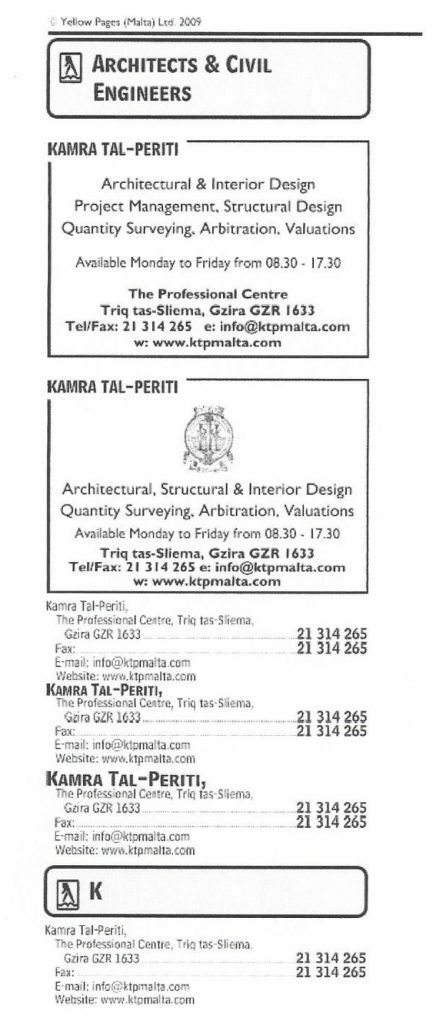DIR 01/18 | Fees
Over the past couple of years, the Council of the Kamra tal-Periti has received an ever increasing number of complaints from members of the public regarding fees charged by periti. In most cases, the situation arises because the periti involved do not inform their clients of the fees that will be charged for the services rendered.
Although the Council of the Kamra tal-Periti does not enter into disputes relating to fees charged by periti, in view of the fact that clients have other means of redress for such issues, the Council would nevertheless like to draw your attention to Regulation 20 of Tariff K of the Code of Organisation and Civil Procedure, which states that:
20(a) The foregoing provisions of this Tariff shall not prohibit a Perit and his client, from agreeing on a fee, or the basis on which the fee is to be determined which is different from that established by this Tariff, and in any case the agreed fee or basis for determining it, not being a basis prohibited by law, shall apply, subject to the provisions of the following sub-paragraphs:
Provided that in any case, a Perit shall inform his client of the applicable fee or the basis on which the fee is to be determined before the service is provided.
20(b) For the purposes of this paragraph, an agreement concerning fess shall be in writing.
It is therefore, not only in your interest, but it is also your obligation to ensure that any agreement on fees is made in writing, and that the services covered by such fee are clearly outlined.
Please be guided accordingly.
Alex Torpiano
President

